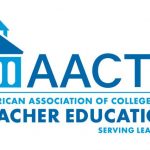This fall, the American Association of Colleges for Teacher Education (AACTE) selected UConn’s Neag School of Education to join its Holmes Scholars Program, a nationwide network of higher education institutions seeking to support students from historically underrepresented communities enrolled in graduate programs across the field of education.
Beginning in Fall 2021, UConn’s Neag School of Education will be offering a new program in American Sign Language (ASL) education. Recently approved by the Connecticut Board of Education, the program is designed to prepare aspiring educators interested in becoming teachers of ASL.
Vincent Rogers of Storrs, Connecticut, a longtime educator and faculty emeritus at the Neag School of Education, died Thursday, Dec. 3, at age 93. He died at home, surrounded by his loving family.
Sandra Chafouleas, a professor in the Neag School of Education at UConn, said that families should come up with a plan and schedule, including time away from all devices.
Today, we join the world in marking International Human Rights Day. Throughout this year, communities near and far have faced some of the most significant human rights challenges since the United Nations adopted the Universal Declaration of Human Rights in 1948.
Today, we join the world in marking International Human Rights Day. Throughout this year, communities near and far have faced some of the most significant human rights challenges since the United Nations adopted the Universal Declaration of Human Rights in 1948.
“Students need more support to adjust to these new times,” said Clewiston Challenger, an assistant professor at UConn’s Neag School of Education. “So school counselors, by themselves, are doing more checking on students for mental health and wellness, providing more support and making sure they’re coming to school in a virtual setting, which then leaves college exploration to be also in the background and not a top priority, which is unfortunate.”
Joseph Renzulli, a professor of educational psychology at the University of Connecticut, explains the concept of ability versus familiarity in another way: assessment of learning versus assessment for learning.
“The 45th anniversary of the Individuals with Disabilities Education Act (IDEA) is particularly meaningful to me and to students with disabilities,” says George Sugai, a Neag School professor emeritus.
On December 15, the Brown Center for Education Policy at Brookings and the National Center for Research on Education Access and Choice (REACH) will cohost a webinar that examines the changing landscape for U.S. schools and education policy.




